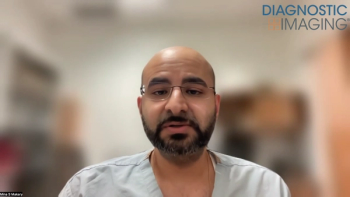
Patients, Caregivers Not Receiving Enough Information Prior to Imaging Examinations
Patients want more information about the tests being performed.
Patients and family members are not receiving adequate information about upcoming imaging examination, according to a study published in the journal Radiology.
Researchers from Connecticut, Massachusetts, and California surveyed patients and caregivers at three pediatric and three adult hospitals to identify what information they found useful before imaging examinations, from whom they preferred to receive the information, and how those preferences related to patient-specific variables.
The 24-item survey was distributed to 1,742 patients and caregivers. A total of 1,542 were returned, 381 partially completed and 1,161 fully completed. The mean respondent age was 46.2 years and more surveys were completed by females and Caucasians.
The results showed that overall, 1,117 of 1,438 respondents (78 percent) reported receiving information of their upcoming tests. Most of these respondents (64 percent) received this information from the referring physician. Respondents scheduled to undergo MR imaging or nuclear medicine examinations were more likely to receive information. Respondents with higher levels of education also received information more often. Half of the respondents (757 of 1452, 52 percent) sought information themselves.
“This means one in five people are showing up for the exam without any information about the test they are getting,” lead author Jay K. Pahade, MD, an associate professor of radiology at the Yale School of Medicine in New Haven, Conn., said in a release. “This is an important finding in today’s health care system, where we want more patient engagement and involvement.”
“These results show that what we as radiologists think patients value is not necessarily what they actually value,” Pahade added. “Our study found that patients value basic information related to the test more than information related to the radiation dose, so we should probably shift our focus to providing that.”
Newsletter
Stay at the forefront of radiology with the Diagnostic Imaging newsletter, delivering the latest news, clinical insights, and imaging advancements for today’s radiologists.












